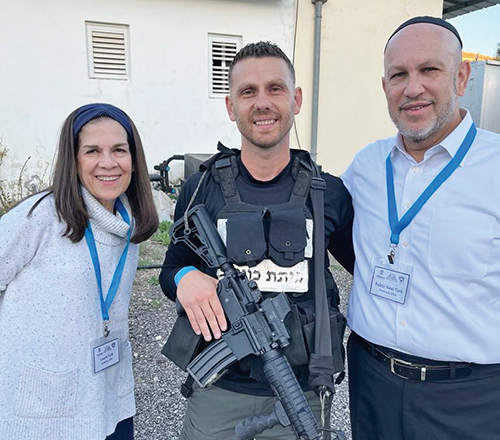
Last week, my husband and I were in Israel to see our son Uri, who is serving in the IDF in northern Israel, and to participate in a Rabbinical Council of America (RCA) mission to the devastated areas in the south. What we saw and experienced was a changed Israel, one we had never seen before. Just a few months prior, on a trip there, we witnessed the protests of the judicial reform movement that were threatening to tear apart the very fabric of the nation. Reform protesters blocked major roads, people hurled curses at each other, and air force pilots declared that they would not show up for reserve duty. On the holiest day of the year protesters demanded that Yom Kippur tefillot be abolished in the streets of Tel Aviv.
And then came October 7. Hamas infiltrated kibbutzim, villages and cities near the Gaza border and slaughtered over 1,200 men, women, children and babies. They took 240 hostages to Gaza. Civilians and soldiers alike.

Throughout the day, soldiers from all over the country were called up. Israel was at war.
Israel has experienced many wars in its short history. Every generation since the founding of the State, young men have had to put on their uniforms and go to war. But this war is different. This war is not only affecting the young men of the IDF; it is profoundly impacting the entire population of Israel, individually and collectively.
Every Israeli is experiencing trauma as a result of the horrific events of October 7, the continuing imprisonment of the hostages, and the war. There is disbelief, horror, grief and fear. Where they once felt safe and protected by the State, people everywhere feel vulnerable and unsafe. Parents, siblings, spouses and children of the chayalim are fearful, but they are also proud and strong. There is a palpable feeling of unity in the country, the likes of which has not been seen in many, many years.
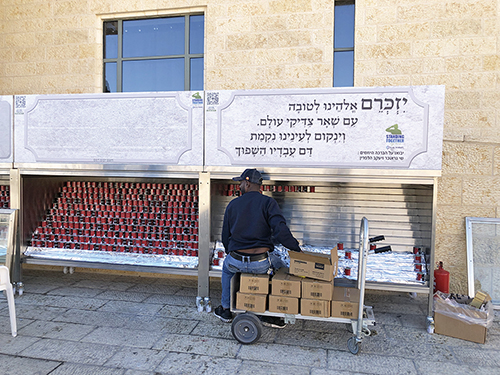
Everywhere we went, the soldiers expressed determination, confidence and strength. They are fully aware of the dangers they face in battle, but are steadfast in their mission to eradicate Hamas and create true security for all of Israel. This, despite the daily death toll of soldiers in their ranks.
Since the first day of the war, Israelis from all sectors of society have felt a deep connection to the soldiers, the hostages and their families. To say that all of Am Yisrael is like one beating heart is no hyperbole. And their connection goes far beyond feelings.
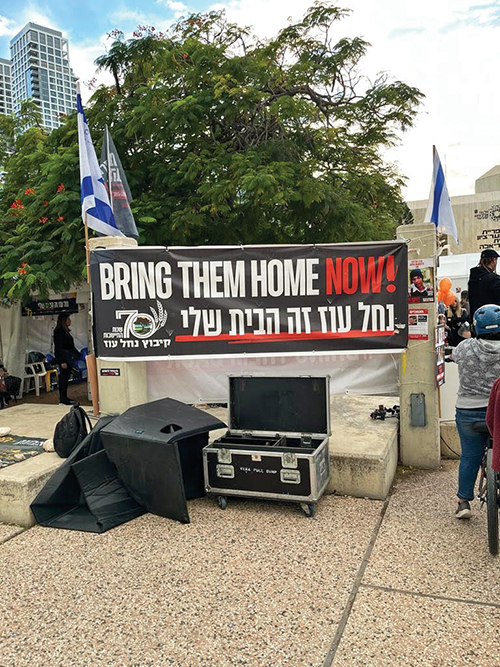
Everyone, both young and old, is involved in daily acts to physically and emotionally support the soldiers and displaced families, and call for the release of the hostages. And it matters not if those in need are from the same sector of Israeli society or from a totally different sector. This erasure of walls is incredible to behold. Because prior to October 7, the various sectors of society had almost no contact with each other, many seeing the other in a negative light. But, overnight, the borders have dissolved. Pro-reformers and anti-reformers, who only a few months before had been vilifying each other, were now embracing each other and talking as brothers. Charedi Jews are visiting army bases all over the country, providing chayalim with tzitzit and making barbecues for them, doing laundry for displaced families from secular kibbutzim, and countless other acts of chesed. Erlau Chasidim lit 138 Chanukah menorahs to represent their deep connection to the hostages. Non-kosher restaurants kashered their kitchens so they could bring food to all chayalim, chiloni and religious alike.
While the Israel of today is radically different from the Israel of October 6, the love and chesed being felt and exhibited toward other Jews is, at the same time, nothing new. It is the natural state of the Jewish people. From the time of Avraham Aveinu, we Jews have been רחמנים בני רחמנים. We stood at Har Sinai כאיש אחד בלב אחד. Throughout the millennia, we have felt a kinship with our fellow Jews and continually exhibited acts of kindness, sometimes at the expense of our own lives. It is in our DNA. It just gets covered up, hidden sometimes.
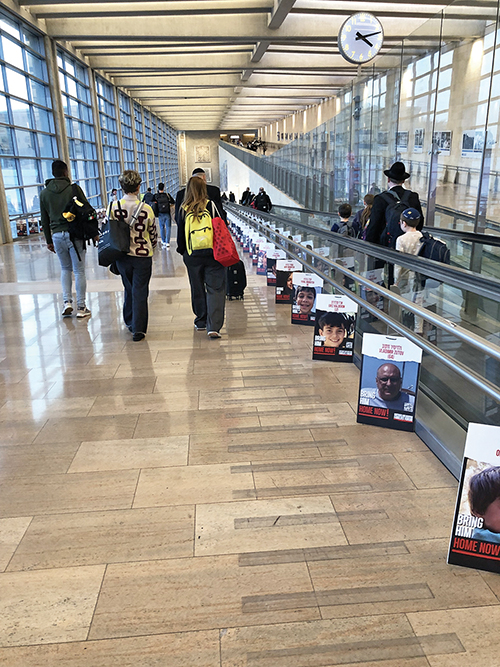
I believe there is hardly a Jew anywhere in the world whose feelings of brotherhood and love toward his fellow Jews have not been reawakened.
My own tefillah has been radically changed since October 7. The words I say are not new. They are thousands of years old and I have said them many, many times before, but they now evoke vastly different meanings and emotions. Prior to October 7, much of my kavanah revolved around my family and circle of acquaintances. Now, so much revolves around Am Yisrael. And because our nation is in such dire need, my tefillot have taken on a great deal of urgency and intensity. Tears fall where they had not before.
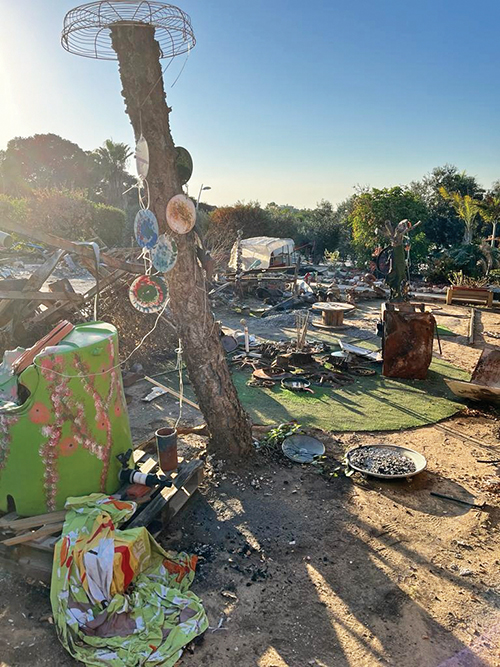
We will continue to disagree and even fight with each other. All families do. But we ask Hashem to help us retain this deep love we now feel toward one another, regardless of the differences between us.
In the time of the חשמונאים, Hashem מסר גבורים ביד חלשים, ורבים ביד מעטים״. We pray that Hashem will bring us to a quick victory against the enemies we are fighting today.
Laura Turk is a retired marriage and family therapist, who currently traverses the globe visiting her children and grandchildren.









